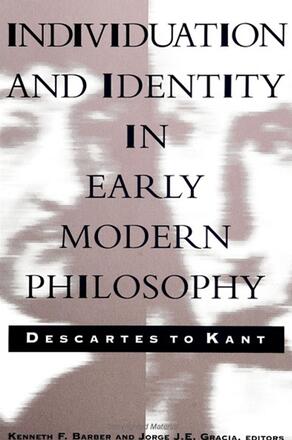
Individuation and Identity in Early Modern Philosophy
Descartes to Kant
Alternative formats available from:
Description
Philosophy in the sixteenth through eighteenth centuries has traditionally been characterized as being primarily concerned with epistemological issues. This book is not intended to overturn this characterization but rather to balance it through an examination of equally important metaphysical, or ontological, positions held, explicitly or implicitly, by philosophers in this period.
Major philosophers whose views are discussed in this book include Descartes, Malebranche, Spinoza, Locke, Berkeley, Hume, Leibniz, Wolff, and Kant. In addition, the contributors of minor Cartesians, especially Regis and Desgabets, are analyzed in a separate chapter. Although the views of early modern philosophers on individuation and identity have been discussed before, these discussions have usually been treated as asides in a larger context. This book is the first to concentrate on the problems of individuation and identity in early modern philosophy and to trace their philosophical development through the period in a coherent way.
Jorge J. E. Gracia is Professor of Philosophy, State University of New York at Buffalo. He is the author of Individuality: An Essay on the Foundations of Metaphysics and Philosophy and Its History: Issues in Philosophical Historiography; editor of Individuation in Scholasticism: The Later Middle Ages and the Counter-Reformation, 1150-1650; and co-editor of Philosophy and Literature in Latin America: A Critical Assessment of the Current Situation, all published by SUNY Press.
Reviews
Kenneth F. Barber is Associate Professor, State University of New York at Buffalo.